The Materials and Interfaces research group combines an industrial focus with a commitment to understanding underlying research problems from a fundamental physico-chemical perspective. Complementary research interests are driving the development of leading-edge materials, as well as efficient and robust manufacturing processes.
Find out more about graduate studies in materials and interfaces!
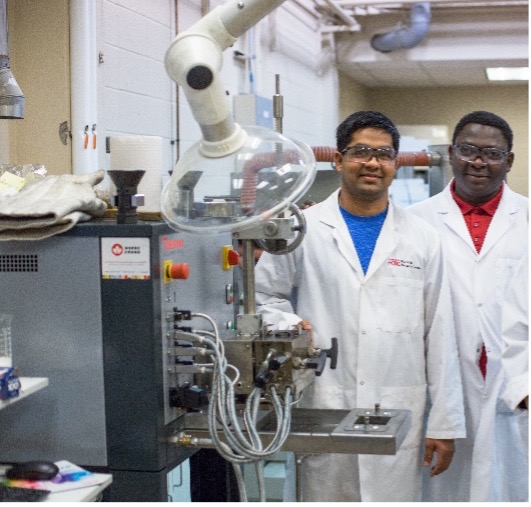
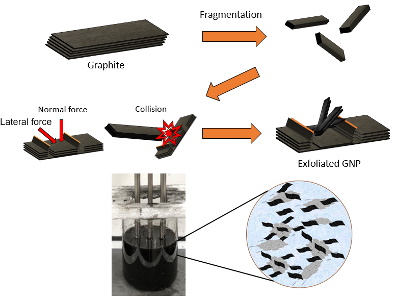
Liquid Phase Exfoliation of Graphene
Emerging strengths include graphene-based technologies and application, such as super-hydrophobic coatings, electrically conductive graphene/polymer composites, the formulation of graphene inks, the printing of electrochemical energy devices (supercapacitors, battery components) and graphene-based sensors.
Researchers at the Graphene/GIFT Research Cluster are developing scalable production methods for production of graphene through graphite exfoliation from graphite.
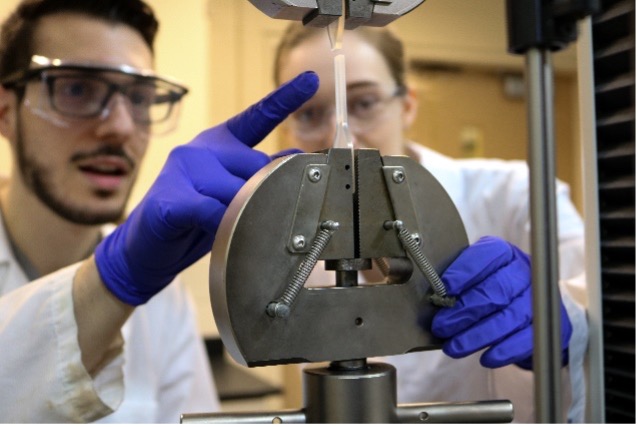
The department has a particularly strong research concentration in macromolecular science and technology, with research expertise spanning the entire range of polymer science and engineering, from polymer reaction chemistry and engineering, to chemical modification, processing and rheology of polymers and polymer nanocomposites. Centralized state-of-the-art instrumentation provides fundamental insight into the molecular and bulk physical properties of polymers needed to design novel materials and optimize their properties.
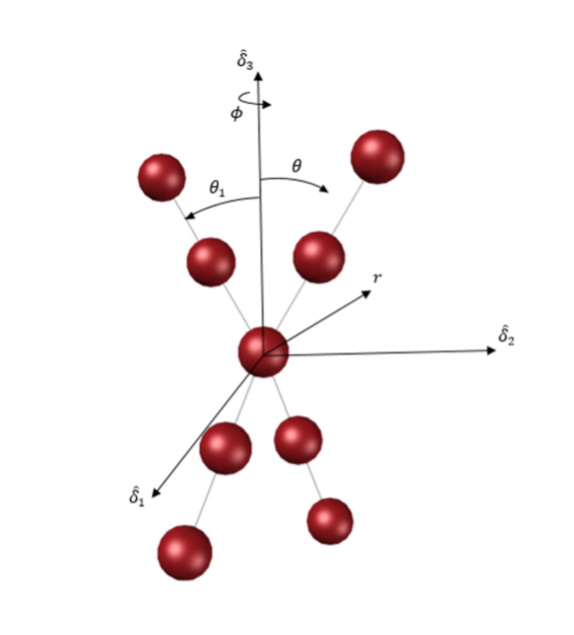
Photo: Molecular coordinates installed on a center-beaded regular tetrahedral (4-arm star) star. Steacy Coombs, PhD Alumni
Expertise in biopolymers and biomaterials includes hydrogels, scaffold material for tissue regeneration, encapsulation of bioactive materials and bio-based/biodegradable polymers.
Production of bio-sourced or natural polymers as alternatives to non-sustainable products derived from petrochemicals is a rapidly accelerating trend, but must be economically viable and sustainable for widespread commercialization. Researchers are working to develop new, more efficient ways for making materials comprised mostly or entirely of renewable materials, for example bioplastics from relatively inexpensive and renewable resources such as glucose derived from starch or cellulose and fatty acids from vegetable oils.
Researchers are developing nanostructured (bio)chemical sensors, nanonstructured hybrid metal/graphene sensors, as well as lab-on-a-chip devices. Major research strengths include microfluidics for studying cells at the single-microorganism level, electrokinetics, nanoplasmonics, electrochemistry, and interfacial and transport phenomena.
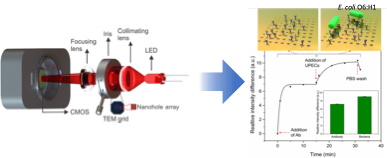
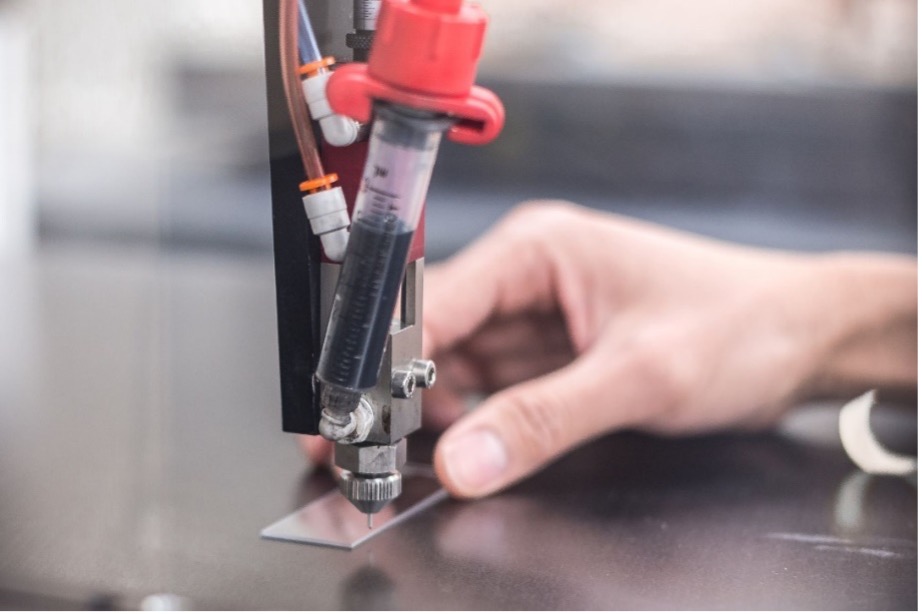
Photo: Printing of Graphene supercapacitor electrodes
Related research areas include metallic and hybrid metal/2D-material nanostructures, portable and wearable sensors, miniaturized energy storage applications (micro-batteries) and directed nanoparticle assembly into functional structures and devices.